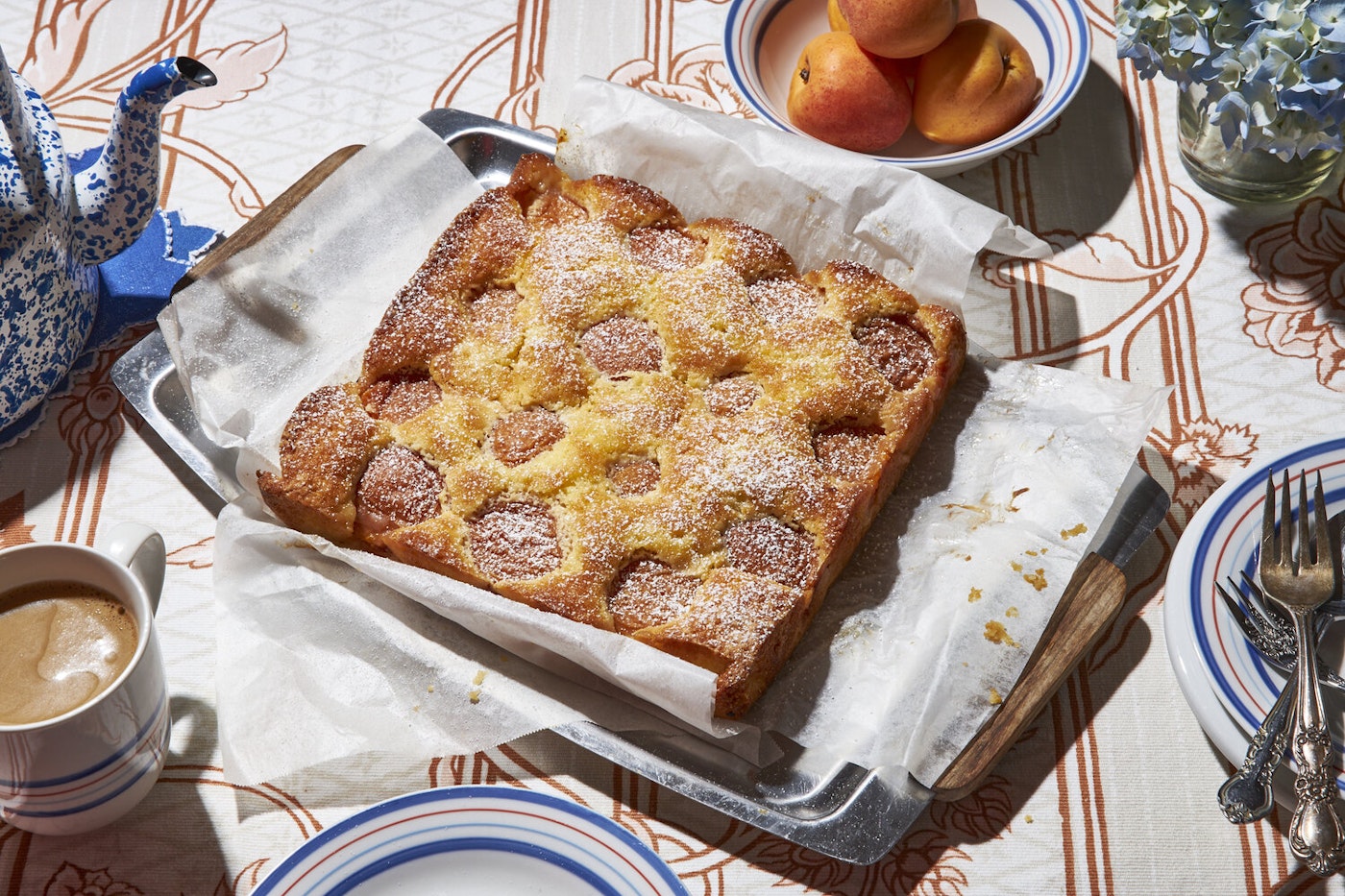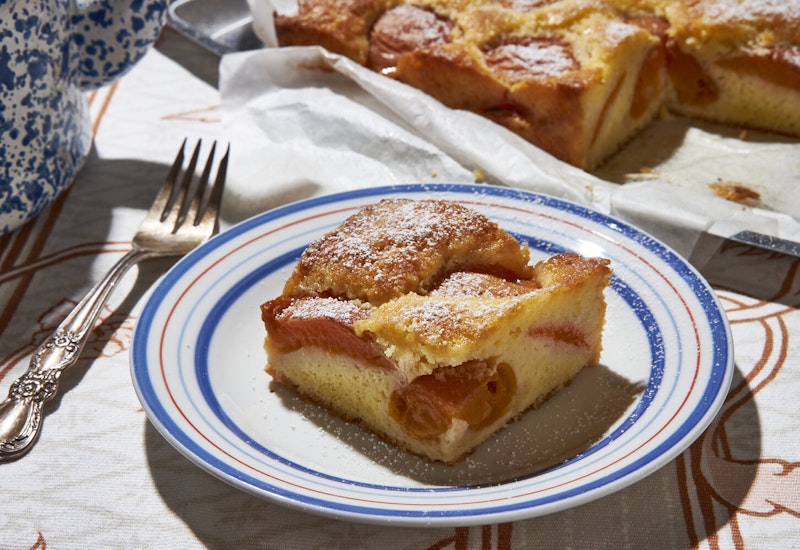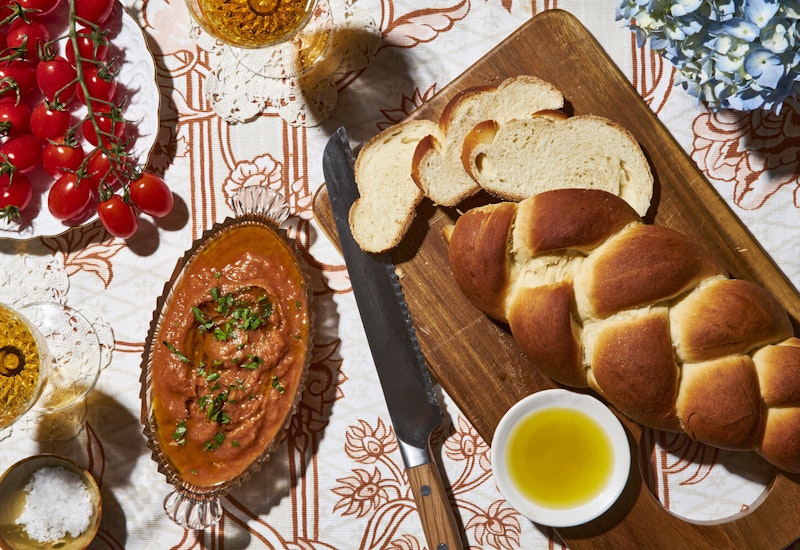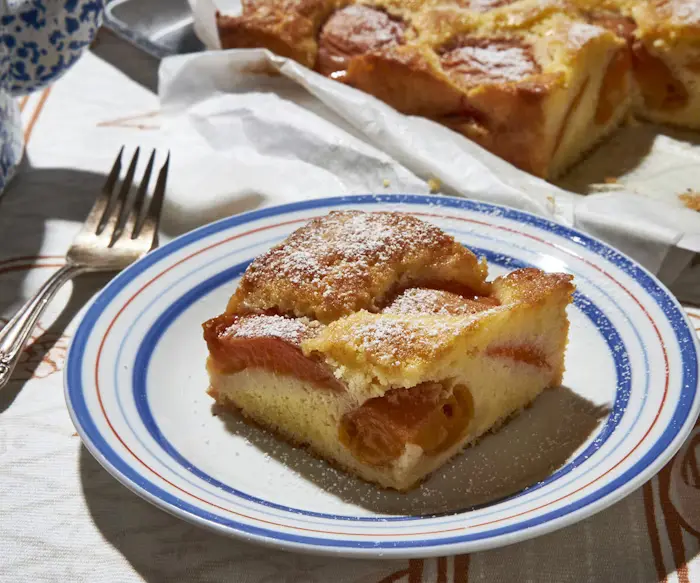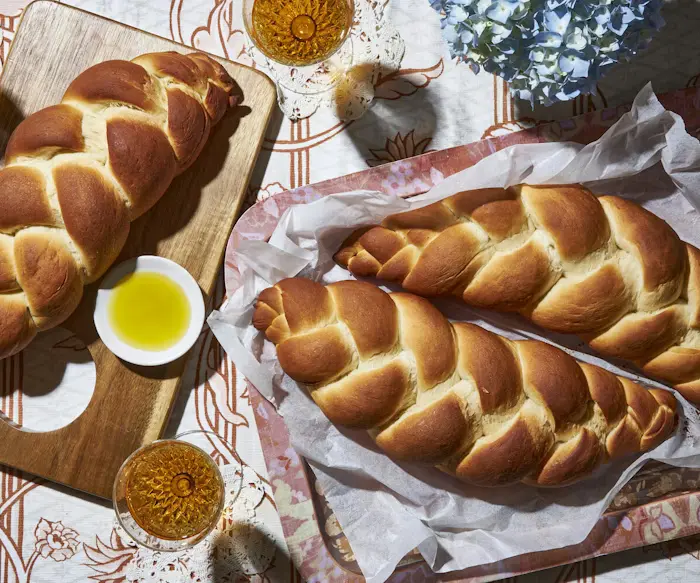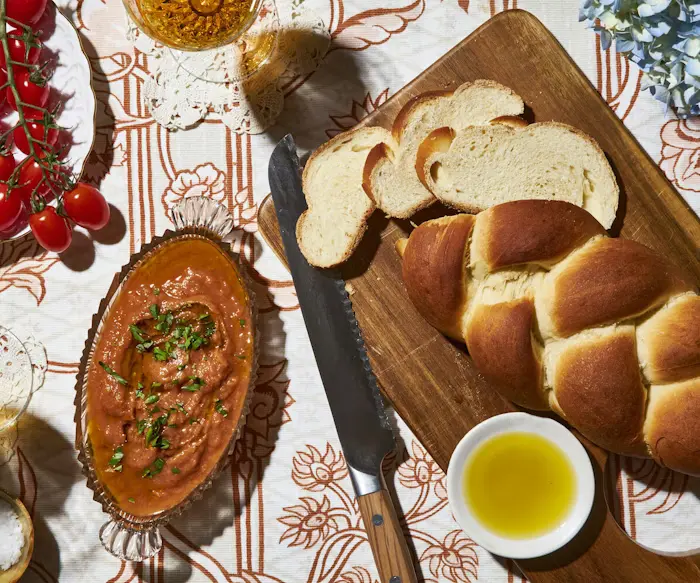In writer and chef Michal Shamir’s Brooklyn home, the dishes on her table mirror her family’s diverse roots — so do the ones she shares on WoodSpoon, an app where she sells home cooked food. Sweets like babka, vanilla cookies, and apricot cake come from her mother’s side of the family and their life in Austria and Poland. While savory vegetable-forward dishes like double roasted eggplant with cheese and kyopolou, a dip of tomato and eggplant come from Bulgaria, where Michal’s father traces his mother’s roots. When we asked Michal how her family’s diverse cooking traditions influence her, she says, simply and powerfully: “It’s all that I am.”
On Friday nights, growing up in Hadar Yosef, a neighborhood in the north of Tel Aviv, Michal and her family would go to her paternal grandparents’ home nearby. Savta Sara, as the family calls her, always started her meals with a spread of salads and challah. “To me, it looked as if it was endless portions of salads and spreads. Kyopholo was one of them,” Michal says. The dip or cooked salad made with tomato and eggplant, is nicknamed chaver, or friend in Hebrew, in the family — a name that Michal’s father and his brother came up with when they were young and loved the dish.
Sara’s Shabbat table was also crowded with roasted cauliflower salad and a roasted zucchini dish. “My grandmother took advantage of every part of the vegetable,” Michal says. The leftover zucchini peels were dressed with mayo and dill and trotted out. Avocado with lemon and hard boiled eggs were always on the table as was tahini and a chopped salad of tomatoes and cucumbers, which is popular in both Israeli and Bulgarian culinary traditions.
Michal remembers that “Every Friday, my mom and aunt would say to my grandma, ‘Sara, you don’t need to make this whole spread. One salad is enough.’” Her grandmother would say sure, no problem and then, as Michal says, “The next week it was all the same.”
Michal’s mother Rafaela, who is known as Rafi, never learned Sara’s recipes, but Michal started to nudge her way into Sara’s kitchen at a young age. “I was always there… I remember standing next to the kitchen counter. I remember it was the height of my eyes,” Michal recalls.
She did the same in her mother and maternal grandmother Zina’s kitchen in Vienna when she visited, poking in to ask questions and trying to learn the family recipes for Zina’s excellent baked goods from Poland and Austria. Zina’s baking was a mix of her own background. Born in Dubno, Poland before World War II she was called Mala as a child. She survived the war living with false papers and ultimately found her way to Vienna, taking the name Zina. Here, she grew her baking repertoire with Austrian recipes including one for vanillekipferl, a vanilla cookie she makes often and always has on hand.
Omi, as she was known in the family, and Michal’s grandfather Henek always planned to make aliyah and move to Israel. They never did, but their daughter Rafi came in 1970 bringing her mother’s recipe for apricot cake with her. Today, Michal’s husband calls the recipe Rafi’s cake, Michal jokes, even though three generations of women have made it.
It’s not only the cake recipe that Michal inherited. From Omi she learned “everything I know about elegance and tenderness,” Michal explains. That has blended with the knowledge from Savta Sara, who is now 88-years-old, who taught her the importance of variety and resourcefulness in preparing each meal. “[Sara] doesn’t cook anymore but she had — and still has, I’m sure — a wonderful hand in the kitchen,” Michal says. Two generations later, so does her granddaughter.
Hebrew-readers can find more recipes from Michal on her blog.
